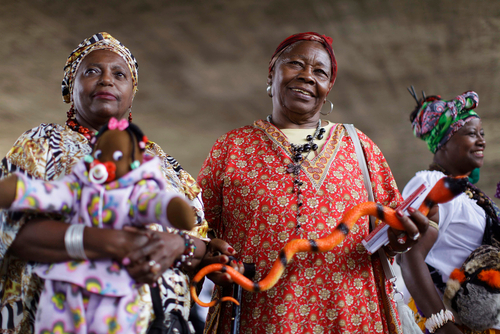On January 24th each year, the world comes together to celebrate a rich tapestry of traditions, arts, and histories. This is the World Day for African and Afrodescendant Culture, a day dedicated to honoring the vibrant and diverse cultures that have emerged from the African continent and spread across the globe. It’s a time to appreciate the immense contributions of African and Afrodescendant people to our shared human heritage and to promote the understanding and preservation of these vital cultures for future generations.
The History and Origins of the Day
The World Day for African and Afrodescendant Culture was officially proclaimed by UNESCO (the United Nations Educational, Scientific and Cultural Organization) in 2019 during the 40th session of its General Conference. The date, January 24, was chosen to coincide with the adoption of the Charter for African Cultural Renaissance in 2006 by the Heads of State and Government of the African Union.
The establishment of this day serves a clear purpose: to recognize and promote the living cultures of the African continent and its diaspora as powerful forces for sustainable development, dialogue, and peace. It’s a formal acknowledgment that these cultures, in all their forms—from music and dance to language and philosophy—are an essential part of humanity’s collective wealth.
How the Day is Celebrated Today
The celebration of World Day for African and Afrodescendant Culture is as diverse as the cultures it honors. From local community gatherings to international online events, people find unique ways to connect with and celebrate their heritage.
Food and Feasting
Food is a cornerstone of culture, and on this day, kitchens around the world come alive with the flavors of Africa and its diaspora. Families might prepare traditional dishes passed down through generations, such as West African Jollof rice, Ethiopian Doro Wat, or Brazilian Feijoada, a hearty stew with deep African roots. It’s a day for sharing meals, telling stories, and celebrating the culinary traditions that connect people to their ancestry.
Music and Dance
Music and dance are powerful expressions of cultural identity. On January 24th, you’ll find vibrant celebrations filled with the rhythms of Afrobeat, reggae, samba, jazz, and blues—all genres with deep roots in African traditions. Communities organize festivals, concerts, and dance workshops, creating spaces where people can move, celebrate, and feel the powerful spirit of the music. These events are not just performances; they are lively, participatory expressions of joy and resilience.
Art, Fashion, and Storytelling
The day is also a platform for artists, designers, and storytellers. Museums and galleries may feature exhibitions of African and Afrodescendant art, from contemporary paintings to historical artifacts. Fashion shows often showcase the beauty of traditional textiles like Ghanaian Kente cloth or Nigerian Ankara fabrics, creatively reinterpreted by modern designers.
Storytelling sessions, poetry readings, and film screenings share the histories, myths, and modern-day experiences of people of African descent, fostering a deeper understanding and appreciation of their journeys.
Evolving Trends in Celebration
In recent years, social media has become a powerful tool for celebrating this day. People use hashtags like #AfrodescendantCultureDay to share photos, videos, and stories, creating a global digital festival. Online forums and webinars connect experts, artists, and activists from different continents, allowing for rich conversations about cultural preservation, identity, and social justice. This digital shift has made the celebration more accessible, allowing people from all backgrounds to participate and learn.
Frequently Asked Questions (FAQs)
What is the main goal of the World Day for African and Afrodescendant Culture?
The primary goal is to celebrate and promote the vibrant cultures of Africa and its diaspora as essential contributors to global development, peace, and dialogue. It encourages the preservation and appreciation of these rich traditions worldwide.
How can I participate in the celebration?
You can participate in many ways! Cook a traditional dish, listen to music from African or Afrodescendant artists, watch a documentary, or read a book by an author of African descent. You can also look for local events in your community or join online celebrations and discussions on social media.
Is this day only for people of African descent?
No, this day is for everyone. It’s an opportunity for people of all backgrounds to learn about, appreciate, and celebrate the diverse and influential cultures of Africa and the African diaspora. It promotes unity and cross-cultural understanding.
What is the difference between “African” and “Afrodescendant”?
“African” generally refers to people and cultures originating from the continent of Africa. “Afrodescendant” refers to people of African ancestry who live outside the continent, often as part of diaspora communities around the world that have formed due to historical movements, including the transatlantic slave trade.
